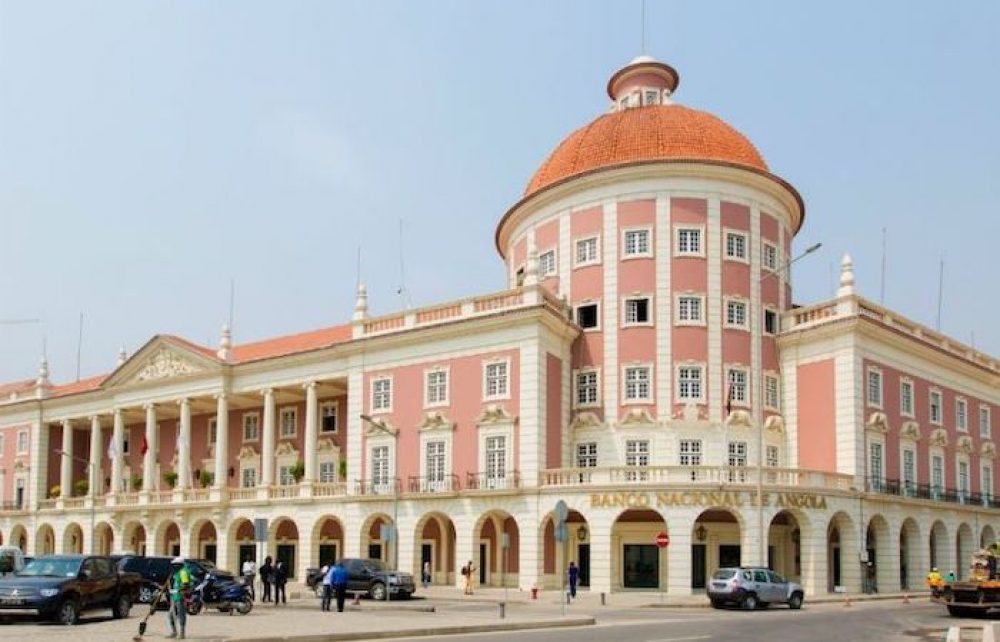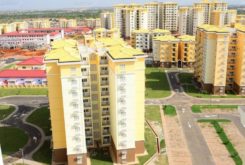Angola´s economy is set to stabilize next year, after five consecutive years of recession, according to an analysis of the State Budget for 2021 by Eaglestone Securities.
The Angolan government’s 2021 budget proposal, recently presented to parliament, assumes that economic activity will stabilize, with activity in the non-oil sector anticipated to advance 2.1%, while low oil prices and a continued decline in production lead to a further contraction in real GDP in the oil and gas sector (-6.2%).
Despite the recovery in economic activity next year, real GDP growth is projected to remain flat in the period.
According to Eaglestone, the recovery in the non-oil sector “reflects the measures implemented in recent years, which, together with the accumulated depreciation of the kwanza, has helped shift part of domestic demand toward local production”.
“In particular, the central bank increased the minimum allocation of credit to promote the production of essential products from 2% to 2.5% of commercial banks’ net assets at a maximum total cost of 7.5% and instructed banks to provide credit in local currency to assist importers of essential goods”, it adds.
Overall, the government foresees all sectors of the local economy recording positive growth in 2021.
Eaglestone highlights a “slight recovery in the construction sector”, which is the third largest sector (after the oil and gas and retail sectors) as it accounts for about 11.5% of GDP.
“The construction sector is expected to advance 1.3% as the Angolan authorities plan to strengthen investment in road infrastructure projects in order to increase activity in local companies and improve job creation. The government also said that it will bet on publicprivate partnerships (PPPs) as an alternative way to sustainably reduce public investment, transferring several projects to private initiative”, the consultancy says.
The Angolan budget forecasts a primary surplus of 4.0% of GDP, above the surplus of 2.2% foreseen for this year, reflecting “a marked improvement in tax receipts both in the oil and non-oil sectors”.
“The expected higher non-oil revenues result from the tax reforms introduced in 2019-20, namely expanding the base of VAT, increasing the rates and progressivity of the property income tax, reforming investment incentives for the corporate income tax, strengthening transfer pricing rules, improving property registration and starting to integrate the informal sector”, the report adds.
The government foresees inflation declining toward 18.7% by end-2021 after reaching 25.0% this year.
The budget proposal also assumes that crude prices will average USD 39 (the same forecast for this year), which according to Eaglestone “is somewhat conservative bearing in mind the projections of institutions like the IMF that foresee average oil prices at close to USD 47 in 2021”.
The government stated that public debt is expected to reach 123% of GDP this year, up from 113% of GDP in 2019, due to the country’s economic downturn and larger budget financing needs that resulted from the impact that the oil price shocks in recent years have had on public receipts.
The deterioration in public debt ratios also reflects the depreciation of the kwanza since about two-thirds of Angola’s
public debt is external.
“Although the country’s public debt is considered sustainable, the risks associated with its high vulnerability to oil price and exchange rate shocks persist. The government reiterated its commitment to implement fiscal consolidation measures to invert this upward trajectory in public debt levels. Still, it is also critical to put Angola back on an economic growth trajectory in the next few years, as this too will help with the authorities’ aim of bringing public debt down to a level equal to or below 60% of GDP over the long-term”, Eaglestone adds.




